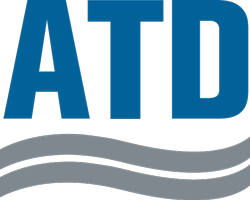
Legislative Affairs
Learn how ATD Legislative Affairs protects and promotes franchised auto and truck dealerships’ interests before Congress.
Legislative Priorities
Last year, the EPA issued its “GHG Phase 3” rule which requires truck manufacturers to annually increase the percentage of ZEVs they sell. By model year 2032, truck makers must manufacturer 60% ZEVs for light-heavy vocational vehicles; 40% ZEVs for medium-heavy vocational vehicles; 30% ZEVs for heavy-heavy vocational vehicles; 40% ZEVs for day cab tractors; and 25% ZEVs for sleeper cab tractors. Last year, only 0.3% of commercial vehicle sales were ZEVs.
The U.S. lacks a national commercial vehicle charging and alternative fueling network, which makes the adoption of heavy-duty ZEVs impractical. A study released by the Clean Freight Coalition found that electrifying the U.S. commercial truck fleet would cost nearly $1 trillion in infrastructure and grid network upgrades to meet demand. Additionally, the GHG Phase 3 rule estimates that in seven years an electric medium/heavy-duty vocational vehicle will cost only $15,000 more than a comparable diesel vehicle. However, today the cost difference between these vehicles is approximately $258,000. H.R. 2814/S. 711, introduced by Rep. Troy Balderson (R-Ohio) and Sen. Bernie Moreno (R-Ohio), would repeal Phase 3 and require new greenhouse gas standards that are economically practicable and technologically feasible. To preserve customer choice, members of Congress are urged to cosponsor H.R. 2814/S. 711 to stop the partial banning of diesel trucks.
The outdated 12% federal excise tax (FET) on new heavy-duty trucks and trailers is a major barrier to fleet turnover and modernization. First enacted in 1917 to help fund World War I, the tax routinely adds $22,000 or more to a new heavy-duty diesel truck, and $50,000 to an electric or hydrogen fuel-cell truck. New federal emissions and fuel economy mandates have added nearly $40,000 more to the cost of a truck. New trucks have made significant environmental gains, such as reducing nitrogen oxide and particulate matter emissions by at least 98%. The FET remains a costly barrier to the purchase of new trucks equipped with the latest environmental technologies. With 39% of the Class 8 trucks on the road today using pre-2010 engines, FET repeal would immediately accelerate fleet turnover and result in major safety and environmental benefits. Last Congress, ATD and eight trucking organizations urged congressional leadership to pass the bipartisan FET repeal bill. Members of Congress are urged to cosponsor H.R. 2424 to incentivize the replacement of older trucks with newer, safer, and cleaner trucks.
Advocates for “right to repair” legislation claim that independent vehicle repair shops do not have access to the parts or data necessary to repair vehicles. However, this concern was rectified years ago, and the information independent shops need to repair vehicles is available from every truck manufacturer. Unlike previous “right to repair” bills, the REPAIR Act (H.R. 1566/S. 1379) has little to do with repairing a vehicle. Instead, the bill would compel truck manufacturers to provide any “aftermarket parts manufacturer” the information necessary “to produce or offer compatible aftermarket parts,” i.e., parts not made by the truck manufacturer. This legislation would also give any third party unfettered access to data from vehicles, which raises privacy, vehicle security, and safety concerns. The bill is also overly broad as it regulates heavy-duty vehicles the same as light-duty vehicles. Members of Congress are urged not to cosponsor H.R. 1566/S. 1379.
Law enforcement groups support federal legislation to give them the tools to fight catalytic converter theft, which has risen by nearly 900% between 2019 and 2023. There is a lucrative market for stolen catalytic converters since they are hard to trace, and these thefts are costing millions of dollars for both businesses and vehicle owners. Heavy-duty diesel trucks are also vulnerable to theft of their emission control devices known as diesel particulate filters (DPF) and diesel oxidation catalysts (DOC), which contain the same precious metals that attracts thieves to steal catalytic converters. Last Congress, NADA and 120 other organizations supported the bipartisan PART Act that would require new vehicles to have unique, traceable numbers on catalytic converters. The bills also establish a federal penalty for stealing, selling, trafficking or knowingly buying stolen emission control devices. The reintroduced bills (H.R. 5221/S. 2238) include several non-controversial revisions to improve clarity and enhance enforcement. Members of Congress are urged to cosponsor the PART Act (H.R. 5221/S. 2238).
ATD Legislative Issue Briefs
About Legislative Affairs
Learn how ATD Legislative Affairs protects and promotes franchised truck dealerships' interests before Congress. Find the latest legislation affecting the industry, including issues such as tax policy, vehicle commerce, fuel economy and the environment, as well as grassroots.



